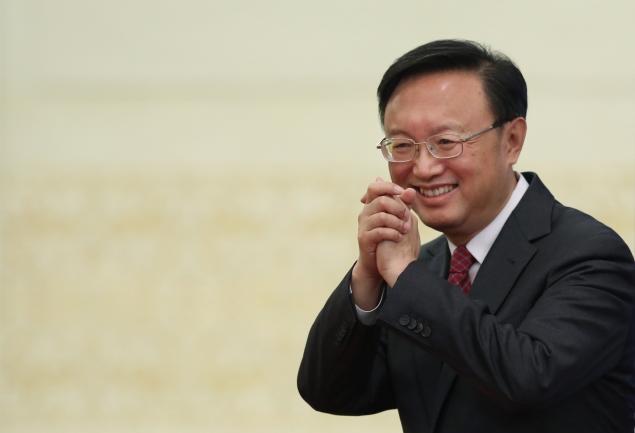- Home
- Internet
- Internet News
- China foreign minister rejects US hacking accusations
China foreign minister rejects US hacking accusations

Yang Jiechi is the highest-level Chinese official to comment on the claims made in a widely endorsed report last month by U.S. cybersecurity firm Mandiant which traced hacking attacks to a Chinese military unit based in Shanghai.
Although he did not address specific accusations, Yang described the claims as a politically motivated smear campaign.
"Anyone who tries to fabricate or piece together a sensational story to serve their political motive will not be able to blacken the name of others or whitewash themselves," Yang told reporters at an annual news conference held on the sidelines of the national legislature's annual session. "We hope the relevant parties will stop irresponsible attacks or accusations."
China's Defense Ministry has also poured scorn on the accusations and denied ever supporting hacking attacks. It issued its own counter-claims last month, saying that overseas computer hackers targeted two of its websites an average of 144,000 times per month last year, with almost two-thirds of the attacks originating in the United States.
Mandiant's report said that Chinese military-backed cyberspies infiltrated overseas networks and stole massive amounts of data from U.S. companies and other entities. The report was widely praised by cybersecurity professionals interviewed by The Associated Press, who said it provided the most detailed picture yet of China's state-sponsored hacking efforts.
Yang said that as a major target for hacking attacks, China supports international regulations under the United Nations to keep the Internet peaceful, free and secure. Such initiatives have met with a cool reception from the U.S. and other nations, largely because of China's reputation for maintaining the world's most thorough and sophisticated Internet censorship regimes.
In addition to patrolling the domestic Internet for signs of dissent, China blocks global websites such as Facebook and Twitter that it sees as providing a platform for organizing activities against the ruling Communist Party.
"We oppose turning cyberspace into a new battlefield or using the Internet as a new tool to interfere in other countries' internal affairs," Yang said.
Get your daily dose of tech news, reviews, and insights, in under 80 characters on Gadgets 360 Turbo. Connect with fellow tech lovers on our Forum. Follow us on X, Facebook, WhatsApp, Threads and Google News for instant updates. Catch all the action on our YouTube channel.
Related Stories
- Samsung Galaxy Unpacked 2026
- iPhone 17 Pro Max
- ChatGPT
- iOS 26
- Laptop Under 50000
- Smartwatch Under 10000
- Apple Vision Pro
- Oneplus 12
- OnePlus Nord CE 3 Lite 5G
- iPhone 13
- Xiaomi 14 Pro
- Oppo Find N3
- Tecno Spark Go (2023)
- Realme V30
- Best Phones Under 25000
- Samsung Galaxy S24 Series
- Cryptocurrency
- iQoo 12
- Samsung Galaxy S24 Ultra
- Giottus
- Samsung Galaxy Z Flip 5
- Apple 'Scary Fast'
- Housefull 5
- GoPro Hero 12 Black Review
- Invincible Season 2
- JioGlass
- HD Ready TV
- Latest Mobile Phones
- Compare Phones
- Tecno Pova Curve 2 5G
- Lava Yuva Star 3
- Honor X6d
- OPPO K14x 5G
- Samsung Galaxy F70e 5G
- iQOO 15 Ultra
- OPPO A6v 5G
- OPPO A6i+ 5G
- Asus Vivobook 16 (M1605NAQ)
- Asus Vivobook 15 (2026)
- Brave Ark 2-in-1
- Black Shark Gaming Tablet
- boAt Chrome Iris
- HMD Watch P1
- Haier H5E Series
- Acerpure Nitro Z Series 100-inch QLED TV
- Asus ROG Ally
- Nintendo Switch Lite
- Haier 1.6 Ton 5 Star Inverter Split AC (HSU19G-MZAID5BN-INV)
- Haier 1.6 Ton 5 Star Inverter Split AC (HSU19G-MZAIM5BN-INV)







![[Partner Content] OPPO Reno15 Series: AI Portrait Camera, Popout and First Compact Reno](https://www.gadgets360.com/static/mobile/images/spacer.png)









